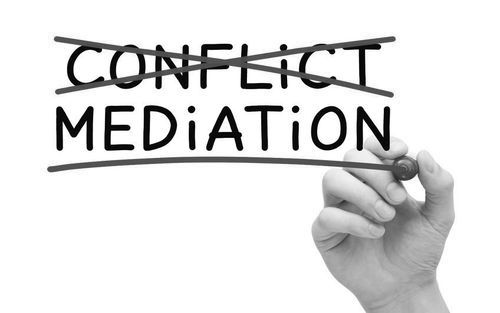Your ex isn’t following the judgment. You are fed up with them (insert your issue here) and you are going to take them to Court. You will make them sorry they were ever born when you hire the best lawyer in town!
Well, before you get too excited, you should probably consider an alternative form of dispute resolution called mediation. Why participate in mediation you ask? Well, here are the top five reasons to give it a shot.
Cheaper
Bringing a lawsuit is expensive. Most people think that once an attorney hears their side of the case at the initial consultation, they can simply walk into Court and get whatever it is they believe they deserve. The fact of the matter is a trial/hearing is the product of a lot of preparation and hard work. Your lawyer needs to make sure the evidence makes its way onto the record and is persuasive to the judge/jury. This takes a lot of time if a person wants it done right. And time is money – especially when you are being billed for every tenth of an hour the attorney is preparing. At mediation, the lawyer does not need to prepare nearly as much. While the time people spend in mediation varies, it is typically shorter than the amount of time spent preparing for and sitting in a trial. This results in you spending less on your attorney, which is a good thing.
Quicker
As stated above, preparing for a trial takes time. So does preparing a motion or a complaint to get an action started. And, the Court’s dockets are not getting any smaller. There have been times during the oil boom in North Dakota that litigants have waited over a year to get into a trial. Getting into mediation is much easier and faster. Instead of waiting for an attorney to draft motions, briefs, and affidavits to get into court, a person could simply request the other side meet at a mediator’s office to try to resolve their differences. This is a much quicker way to try to address contested issues.
Relationship Maintenance
The trial experience is taxing. People get stressed. People say things that they can’t take back -literally. A record is kept of everything said at a trial. When people say hurtful things, especially in family law cases, it is hard for lots of people to act as though they were not said. This often leads to tension-filled exchanges of children and parents acting out in front of their kids. In mediation, people typically start out in separate rooms so they can say those hurtful and angry things outside the presence of the other party. This allows each party to get those things off their chest and get down to the real issues at hand without the other party hearing them. Once parties make progress toward common ground, and after they have expressed frustrations in private, the parties may meet in the same room so they can talk things out in person. In this fashion, the parties may only observe positive communication with each other, which can positively impact future exchanges and interactions in front of the kids.
Confidential
When engaging in mediation neither party can subpoena the mediator as a witness to testify as to what was said at the mediation. Furthermore, neither party can bring up/testify to what was said or offered at mediation. This allows both parties to communicate freely about what is best for the children, without the fear that whatever they say or offer will be used against them in court. When people operate without fear, creative solutions are easier to think of and obtain.
Results/Compliance
When mediating, a person is in control of his or her own destiny. If the party wants certain information before making a decision, they will get it. If either party doesn’t want to agree, that is their choice. But if parties are able to reach an agreement at mediation, they typically take some ownership in it. This typically results in people paying what they are supposed to pay and allowing parenting time when it is supposed to happen. After all, no one told them they had to do it, they agreed to it!
Conclusion
The bottom line is that mediation offers many advantages over conflict-oriented alternatives. In addition to being cheaper, quicker, confidential, and effective, remember that people “sling mud” at their trials and hearings. Those things that are said are hard not to act upon and harder to forget. Mediation allows parties to try to resolve their issues in a non-confrontational manner. You should give it a shot.
Any of our experienced family law attorneys here at SW&L are happy to discuss and/or conduct a mediation for you. You can reach our Family Law Team at 701-297-2890, or send us an email below.
The information contained in this article and on this website is for informational purposes only and not for the purpose of providing legal advice.










